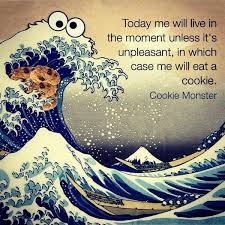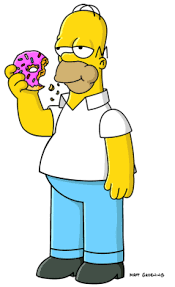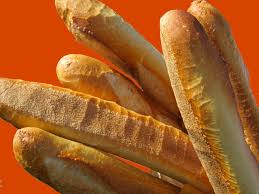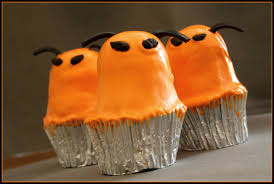
Why is it so easy to eat and so hard to work out? People invariably need no coaxing to eat. They look forward to it, consume mass quantities with gusto, and even look back on the meal with a certain fondness. One out of five people force themselves to exercise, and the other four out of five people don’t work out at all except in front of the fridge. It’s open and bend and reach and up and close and open and bend and reach and up and close, repeat. There are whole professions dedicated to help people work out. Not so with eating. You don’t find eatotonics classes where we all get together around a big table with a horribly enthusiastic cheerleader egging us on. Hard to imagine a personal eating trainer at dinner. ”O.K. O.K. That was good. Lift that fork again! C’mon! You can do it! Three more reps and we’re done.”
There are exceptions. Some people don’t eat enough and some people do work out too much, but the overwhelming tide of humanity goes the other way. When given the chance of working out or watching other people work out (sports on TV), most people will do the latter, and eat while they are doing it. Since everybody knows you are supposed to exercise and not overeat, why does the average person do just the opposite?

We are the victims of our own success. In the beginning, when the world was young it was also hungry. Humankind grew up in the East African rift valley over the last million years or so. Estimates are, to get enough food those early hunter gatherer societies would walk six or seven miles a day.

You didn’t need a coach, you had a built-in coach called hunger. Hunger is an excellent coach. Exercise was provided by the lifestyle and nobody liked it then either, so we invented ways to avoid it ultimately inventing the car. We have gotten so good at it that by now you have to schedule exercise.
People in cities that were built up after the invention of the car (cities like LA, Dallas, Phoenix) get no exercise unless they seek it out, and the general population is not in good shape. You can’t even walk around because cars require big roads and big parking lots so everything is spread out. LA has sidewalks, but I don’t know why. My first time out there I went for a walk. I was the only pedestrian for miles. Eventually a police cruiser started to follow me, I suppose because I was involved in the suspicious act of walking. Without a car, you can’t exist in these places. People in cities that were built up before the invention of the car (Chicago, San Francisco, and all the big eastern cities) get more exercise and the populations fare a bit better. Without cars, the cities are more dense and you can walk from place to place. Many people don’t have cars. The cities solved the problem of getting around with subways and busses, which you still have to get to. Most New Yorkers climb many flights of stairs every day just to get to work. Even so, they are hardly clocking seven miles.
Since we used to walk all over, why no urge to do it now? Simple, then as now, the internal urge was to conserve energy. Food was hard to come by and what you could depend on was sometimes it would be really hard to come by – famine. Famine was always around, and for much of the world it still is. The survival strategy then would be to get as many calories as you can whenever you can and expending as few calories as possible to do so. The ultimate expression of this universal desire is driving to the Olive Garden.

If they could figure out a conveyor belt to take you from your car to a booth they would do it. There are drive through deli’s in California where attendants put anything in your car you like. Not only do we want to eat as much as possible, we want to eat as much food with as many calories as possible. Carbohydrates (sugar, high fructose corn syrup, bread, cereal, crackers, cake, pasta, potatoes) are a great source of calories and fats (butter, cheese, oil) are even better. Too improve a carb, just add fat. Bread is improved with butter. Bread is really improved by deep frying it and rolling it in granulated sugar – churros! Pasta is improved with a cream sauce. Potatoes are improved with sour cream and butter (even better, deep fry the potatoes in oil to make fries and smother them in melted cheese!) Heck, you can even fix vegetables with fat. Salad dressings (ranch, blue cheese, creamy Italian) are more than half fat. What does asparagus need? Hollandaise sauce which is fat squared! What can we do for this broccoli? I know, lets pour some melted cheese on it. Hungry yet?
This particular desire for fats is driven by a neurotransmitter called cholecystokinin, a mouthful of a word that causes you to eat many more mouthfuls. Cholecystokinin is THE BEAST WITHIN YOU.

Plants generally don’t have fats. Animals have fats, and they want keep them. If you want a fat now you need do no more than walk into a convenience store. If you wanted a fat in the old days it would be attached to some animal who was running away from you. You’d have to sharpen a stick, make a strategy, walk even more miles then try to kill it and if it was big it just might kill you. What a pain. You can almost see Thag looking out of his cave on a winter morning at some wooly mammoth who is looking right back at him as if to say, “Just try it.” Thag turns to Mrs. Thag and says, “Can we just have pasta tonight?”

We used to need a strong incentive to hunt down those fats. Cholecystokinin is a neurotransmitter that can control your mood. The stomach releases it when you eat food with fats and that makes you feel good. Everybody has their own comfort food, and every one of those foods is laced with fat. Nobody looks at rice cakes as a comfort food. Wrap them in bacon and you are getting closer.
Not only do we have a sweet tooth, we have a fat tooth. We still have the cave man drives that we used to need to get calories, and especially fat calories, but now we can get them easily, and we do. We’ll take things that already have plenty of fat and add more fat to it. “I’ll have the double bacon cheeseburger with fries. Supersize me.” Dominos sold a lot more pizza when they doubled the cheese on it. Now they even have cheese inside the perimeter crust.
Our sweet tooth is sharpened by the bacteria in our gut. If we eat a lot of carbs, the bacteria in our gut that breaks down carbs is getting more nutrition, so it is fruitful and multiplies. Since more is better it will secrete its own hormones and neurotransmitters that make you crave even more carbs, thereby ensuring its own food supply. It’s not so much that you think with your gut as your gut often thinks for you.

If you are having a hard time accepting the idea that gut bacteria – the micribiome – are influencing your behavior this sort of thing goes on all the time. We have a dynamic and shifting relationship with the civilizations we carry within us. Various species within the intestinal biota can be “good guys” one day and “bad guys” the next, so such labels are not so useful. Think of it more like the UN. Everybody has their own agenda and sometimes these agendas coincide and sometimes they do not. If you are curious about this topic, I recommend I Contain Multitudes by Ed Yong, a fascinating walk through the various relationships within ourselves.
The body is well designed for the hardscrabble existence it evolved in. It is not good for the land of milk and honey. When you go “on a diet” you are going against the grain. One thing is certain. All extreme diets fail. Unless you want to suffer and gain weight don’t go there. They all advertise about how much weight people lose but everybody on them gains it back within a year. A workable diet is what you do eat, not what you don’t eat, and cutting out your favorite stuff will only make you want it more. Also, your body interprets extreme rationing as famine and decreases its calorie use which makes you tired and crabby. So eat what you want, just not as much as you want to. (That said, junk food is not a good idea.) Decreasing eating by a little bit is way more effective because it has to be something you can sustain forever. If you link that with moderate exercise the weight will come off. Exercise is at least as important as diet, probably more so. This is easier said than done. Behavior modification seems to be about the hardest thing in the world. Ask anyone who smokes.

My next post will address why we don’t have an exercise tooth to go with the sweet tooth and the fat tooth.
